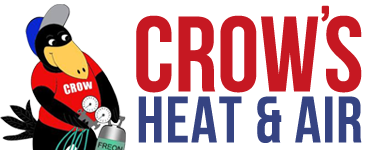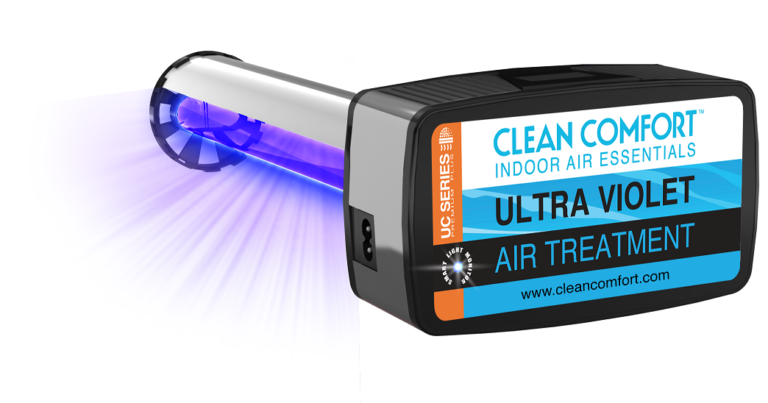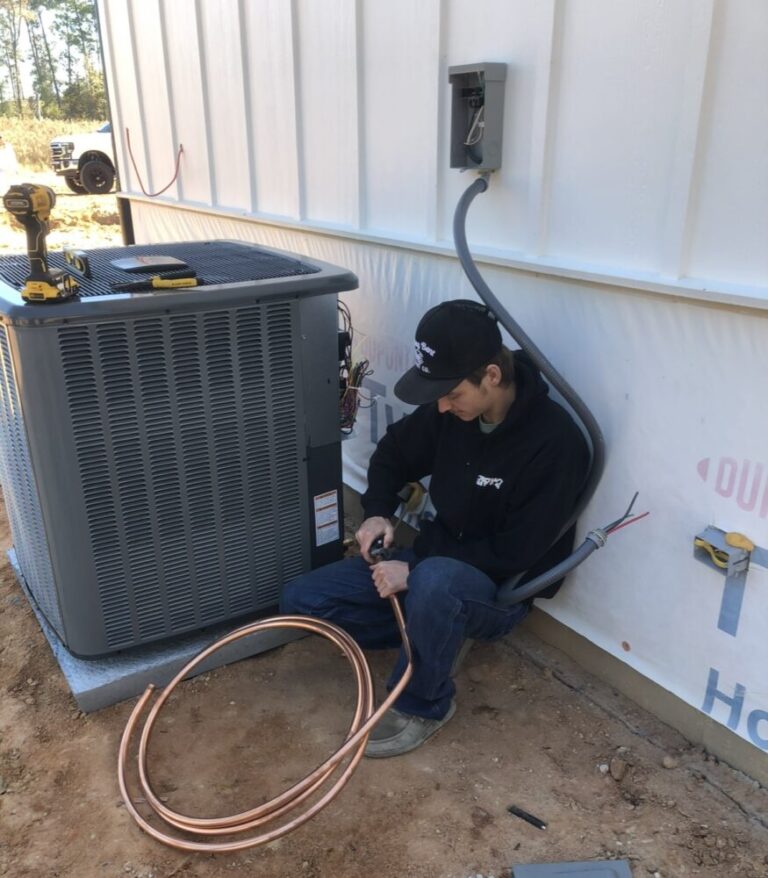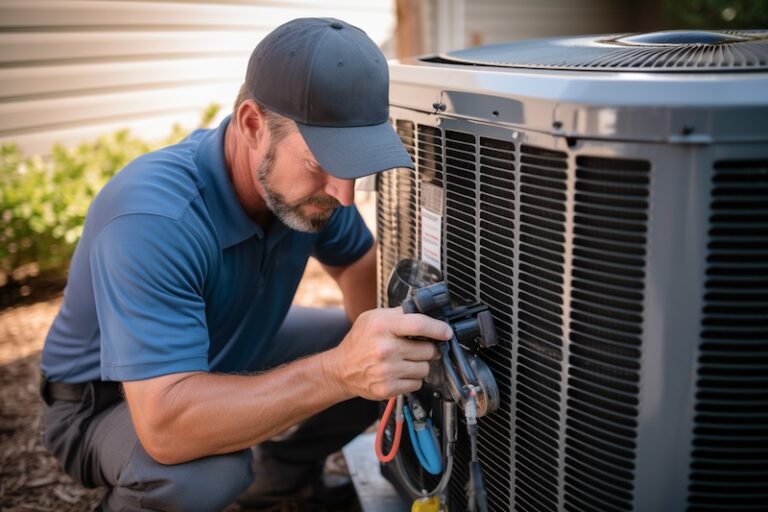How Does Your HVAC System Affect Workplace Productivity?
Modern Climate Control: The Secret to Peak Performance and Employee Satisfaction
Have you noticed employees constantly adjusting thermostats, complaining about temperature, or losing focus during the workday? The culprit might not be lack of motivation but rather an outdated or poorly maintained HVAC system. At Crow’s Heat & Air, we’ve seen firsthand how proper climate control transforms workplaces from uncomfortable, inefficient environments into spaces where employees thrive and businesses prosper. Temperature isn’t just about comfort. Research consistently shows that workplace climate directly impacts cognitive function, accuracy, and overall productivity, with poorly regulated environments costing businesses far more in lost productivity than they save on energy bills.
For years, we’ve partnered with businesses throughout the region to optimize their heating and cooling systems for maximum efficiency and employee comfort. Our expertise goes beyond basic installation and repair. We understand the science behind workplace climate control and how modern HVAC technology can solve age-old productivity challenges. From programmable zoning systems that create micro-climates within your facility to smart thermostats that optimize performance based on occupancy, we deliver climate control solutions that pay for themselves through improved productivity and reduced energy costs.

The Science Behind Temperature and Performance
Understanding why temperature matters starts with recognizing how our bodies respond to thermal stress. When the workplace is too cold, blood flow slows and energy intended for mental tasks gets diverted to maintaining body temperature. Employees feel lethargic, make more typing errors, and struggle to concentrate. Conversely, when environments become too warm, people experience drowsiness and decreased cognitive function. Excessive heat can even trigger headaches that make clear thinking nearly impossible.
Research from leading universities has identified that maintaining temperatures within the optimal comfort range significantly reduces workplace errors and measurably improves productivity. The challenge lies in achieving this balance, as temperature perception varies based on factors like age, gender, metabolic rate, and activity level.
Here’s the reality that many business owners overlook: cutting corners on climate control to reduce energy costs often backfires dramatically. The money lost through decreased productivity, increased errors, and higher employee turnover far exceeds any utility savings. When employees are comfortable, they work more efficiently, make better decisions, and contribute more value to your business. It’s a simple equation that smart business owners understand well.
How Modern HVAC Systems Solve Productivity Challenges
Zoning Technology for Diverse Needs
Not all areas of your business need the same temperature. Server rooms require extra cooling to protect valuable equipment. Meeting spaces packed with people need different climate control than individual offices. Perimeter offices facing direct sunlight have vastly different requirements than interior spaces. Modern zoning systems allow you to create customized climate zones throughout your facility, ensuring each area maintains optimal conditions without wasting energy.
This technology proves particularly valuable for diverse workforces. Research shows women typically perform better in slightly warmer environments, while men tend to prefer cooler settings. Zoning systems let you accommodate these differences by setting different temperatures in various work areas, reducing complaints and improving overall satisfaction.
Smart Controls and Air Quality
Today’s smart HVAC systems learn occupancy patterns, adjust for weather conditions, and optimize performance based on real-time data. Programmable thermostats create customized schedules aligned with employee work hours, ramping up climate control before staff arrives and reducing energy consumption during off-hours. These systems detect when conference rooms are occupied and adjust accordingly, preventing energy waste while ensuring comfort.
Beyond temperature, air quality and humidity levels play crucial roles in employee health and performance. Modern HVAC systems filter dust, allergens, and pollutants from the air, reducing respiratory issues and sick days. Proper humidity regulation prevents stuffiness and the dry air that causes discomfort and static electricity problems. Poor air quality leads to what experts call “sick building syndrome,” where employees experience headaches, dizziness, and fatigue directly linked to indoor air conditions. Upgrading your HVAC system with advanced filtration dramatically improves air quality and reduces these health-related productivity losses.
The Business Impact of Quality Climate Control
The benefits of modern HVAC systems extend beyond employee comfort to tangible business outcomes. Comfortable employees take fewer sick days, remain focused throughout the day, and produce higher-quality work with fewer errors. This sustained focus translates directly into improved customer service and better business results. When your team isn’t distracted by temperature discomfort, they can dedicate their full attention to serving customers and achieving business goals.
For businesses that store temperature-sensitive products or materials, proper climate control is essential for protecting inventory and meeting regulatory requirements. Pharmacies, food service operations, medical facilities, restaurants, and many other businesses require precise temperature and humidity control to prevent costly spoilage and maintain compliance with health and safety standards.
Modern, energy-efficient HVAC systems also significantly reduce operating costs compared to older models. While upgrading requires an investment, the combination of energy savings and productivity improvements typically delivers returns that justify the expense. Plus, demonstrating commitment to employee comfort enhances your reputation as an employer of choice, helping attract and retain top talent in today’s competitive labor market.
Signs Your HVAC System Needs an Upgrade
Watch for these warning signs that your current system is hurting productivity: frequent temperature complaints from employees, noticeable hot and cold spots throughout your facility, employees bringing in personal heaters or fans to compensate for poor climate control, increasing energy bills despite no change in usage patterns, and inconsistent system performance throughout the day. If your system is more than a decade old, newer models offer significant efficiency improvements worth exploring.
Regular maintenance prevents many productivity-draining problems. Clogged filters, dirty coils, and failing components cause temperature variance and poor comfort conditions. Professional maintenance not only reduces energy consumption and repair costs but prevents the productivity losses that result from uncomfortable work environments. It’s an investment that consistently pays dividends.
Ready to Transform Your Workplace Productivity?
Your employees are your most valuable asset, and their environment directly impacts their performance. Don’t let an outdated or poorly maintained HVAC system hold your business back. Modern climate control technology offers practical solutions to productivity challenges, delivering measurable improvements in employee comfort, health, and performance while reducing your energy costs and operational headaches.
Ready to upgrade your workflow with modern HVAC? Contact Crow’s Heat & Air today for a comprehensive evaluation of your current system and a customized plan to optimize your workplace climate. Our experienced team will help you create a comfortable, productive environment where your employees and your business can thrive. Call us now to schedule your consultation and discover the difference professional climate control makes!






